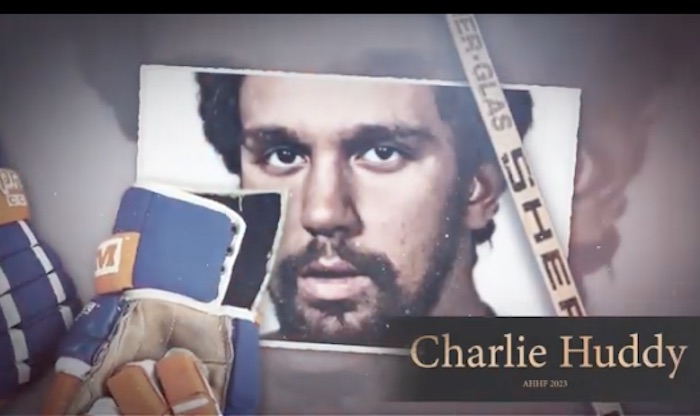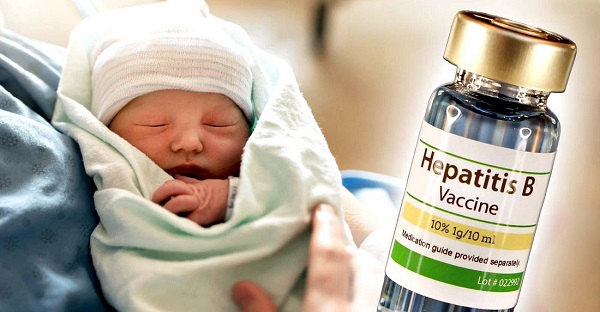Alberta
Stanley Cup winnners Huddy and Hunter headline 2023 Hockey Alberta Hall of Fame Inductees

From Alberta Hockey
ALBERTA HOCKEY HALL OF FAME CALLS THE CLASS OF 2023
Six individuals and 10 teams will enter the Alberta Hockey Hall of Fame in 2023.
Six individuals and the teams comprising a “decade of excellence” in women’s hockey are being called to the Alberta Hockey Hall of Fame (AHHF) as the Class of 2023.
This year’s class includes:
- CHARLIE HUDDY – one of seven Edmonton Oilers who was a member of all five of the franchise’s Stanley Cup winning teams (1984, 1985, 1987, 1988, 1990), and the NHL’s first recipient of the Plus/Minor Award in 1983. He played for 11 seasons and then served as an assistant coach for 23 years in the NHL.
- TIM HUNTER – with more than four decades spent in the NHL and WHL as a player and coach, he helped bring a new focus to smart technology to the sport. In 1989, he lifted the Stanley Cup with the Calgary Flames in 1989 and continues his engagement in the community as an active alumnus.
- EARL INGARFIELD SR. – played in the NHL for 13 seasons, he was the first player selected in the Pittsburgh Penguins expansion draft. In retirement, Earl scouted and coached with the New York Islanders.
- KAREN KOST – spent 34 years as an official and leader in training and mentoring officials across Alberta and Canada. Karen worked almost every level of hockey nationally and internationally.
- BOBBY OLYNYK – a dedicated volunteer in the game for nearly 60 years. He is well known for his role as a builder and leader of what is now known as the Alberta Elite Hockey League U18 AAA division.
- JOHN UTENDALE – the first Black hockey player to sign an NHL contract. While he never played in the NHL, John is considered a trailblazer in the game in Canada and United States. He was the first Black member of the U.S. men’s coaching staff as a member of the “Miracle on Ice” Olympic champions in 1980.
- EDMONTON CHIMOS: “A DECADE OF EXCELLENCE” – the longest running Senior Women’s AAA hockey program in Alberta, the organization’s 1983-1993 era captured every Hockey Alberta Provincial Championship (Senior A, Female AA, Female AAA) and three Abby Hoffman Cup National Women’s championships (1984, 1985, 1992).
The Class of 2023 was selected based on their outstanding achievements, dedication and commitment to building hockey in Alberta in all aspects of the game.
“Once again, we have the opportunity to celebrate the rich hockey history in this great province,” said Al Coates, Chairmen of the Alberta Hockey Hall of Fame Committee. “It’s another outstanding class of inductees with an extensive list of achievements that reflect in the game today.”
The honoured inductees will be welcomed into the hall on Sunday, July 16 at the AHHF Induction Gala at the Coast Hotel in Canmore. Tickets for the AHHF Induction Gala are available to purchase on ahhf.ca.
Full biographies for the Class of 2023 can be found on the AHHF website.

Alberta
They never wanted a pipeline! – Deputy Conservative Leader Melissa Lantsman

From Melissa Lantsman
Turns out the anti-development wing of the Liberal Party never stopped running the show.
Today, we’ll see if the Liberals vote for the pipeline they just finished bragging about.
Spoiler: they won’t. Because with the Liberals, the announcements are real, but the results never are.
Alberta
Premier Smith: Canadians support agreement between Alberta and Ottawa and the major economic opportunities it could unlock for the benefit of all

From Energy Now
By Premier Danielle Smith
Get the Latest Canadian Focused Energy News Delivered to You! It’s FREE: Quick Sign-Up Here
If Canada wants to lead global energy security efforts, build out sovereign AI infrastructure, increase funding to social programs and national defence and expand trade to new markets, we must unleash the full potential of our vast natural resources and embrace our role as a global energy superpower.
The Alberta-Ottawa Energy agreement is the first step in accomplishing all of these critical objectives.
Recent polling shows that a majority of Canadians are supportive of this agreement and the major economic opportunities it could unlock for the benefit of all Canadians.
As a nation we must embrace two important realities: First, global demand for oil is increasing and second, Canada needs to generate more revenue to address its fiscal challenges.
Nations around the world — including Korea, Japan, India, Taiwan and China in Asia as well as various European nations — continue to ask for Canadian energy. We are perfectly positioned to meet those needs and lead global energy security efforts.
Our heavy oil is not only abundant, it’s responsibly developed, geopolitically stable and backed by decades of proven supply.
If we want to pay down our debt, increase funding to social programs and meet our NATO defence spending commitments, then we need to generate more revenue. And the best way to do so is to leverage our vast natural resources.
At today’s prices, Alberta’s proven oil and gas reserves represent trillions in value.
It’s not just a number; it’s a generational opportunity for Alberta and Canada to secure prosperity and invest in the future of our communities. But to unlock the full potential of this resource, we need the infrastructure to match our ambition.
There is one nation-building project that stands above all others in its ability to deliver economic benefits to Canada — a new bitumen pipeline to Asian markets.
The energy agreement signed on Nov. 27 includes a clear path to the construction of a one-million-plus barrel-per-day bitumen pipeline, with Indigenous co-ownership, that can ensure our province and country are no longer dependent on just one customer to buy our most valuable resource.
Indigenous co-ownership also provide millions in revenue to communities along the route of the project to the northwest coast, contributing toward long-lasting prosperity for their people.
The agreement also recognizes that we can increase oil and gas production while reducing our emissions.
The removal of the oil and gas emissions cap will allow our energy producers to grow and thrive again and the suspension of the federal net-zero power regulations in Alberta will open to doors to major AI data-centre investment.
It also means that Alberta will be a world leader in the development and implementation of emissions-reduction infrastructure — particularly in carbon capture utilization and storage.
The agreement will see Alberta work together with our federal partners and the Pathways companies to commence and complete the world’s largest carbon capture, utilization and storage infrastructure project.
This would make Alberta heavy oil the lowest intensity barrel on the market and displace millions of barrels of heavier-emitting fuels around the globe.
We’re sending a clear message to investors across the world: Alberta and Canada are leaders, not just in oil and gas, but in the innovation and technologies that are cutting per barrel emissions even as we ramp up production.
Where we are going — and where we intend to go with more frequency — is east, west, north and south, across oceans and around the globe. We have the energy other countries need, and will continue to need, for decades to come.
However, this agreement is just the first step in this journey. There is much hard work ahead of us. Trust must be built and earned in this partnership as we move through the next steps of this process.
But it’s very encouraging that Prime Minister Mark Carney has made it clear he is willing to work with Alberta’s government to accomplish our shared goal of making Canada an energy superpower.
That is something we have not seen from a Canadian prime minister in more than a decade.
Together, in good faith, Alberta and Ottawa have taken the first step towards making Canada a global energy superpower for benefit of all Canadians.
Danielle Smith is the Premier of Alberta
-

 COVID-192 days ago
COVID-192 days agoUniversity of Colorado will pay $10 million to staff, students for trying to force them to take COVID shots
-

 Bruce Dowbiggin2 days ago
Bruce Dowbiggin2 days agoIntegration Or Indignation: Whose Strategy Worked Best Against Trump?
-

 Focal Points2 days ago
Focal Points2 days agoCommon Vaccines Linked to 38-50% Increased Risk of Dementia and Alzheimer’s
-

 espionage2 days ago
espionage2 days agoWestern Campuses Help Build China’s Digital Dragnet With U.S. Tax Funds, Study Warns
-

 Bruce Dowbiggin2 days ago
Bruce Dowbiggin2 days agoWayne Gretzky’s Terrible, Awful Week.. And Soccer/ Football.
-

 Agriculture2 days ago
Agriculture2 days agoCanada’s air quality among the best in the world
-

 Health1 day ago
Health1 day agoCDC Vaccine Panel Votes to End Universal Hep B Vaccine for Newborns
-

 Business1 day ago
Business1 day agoCanada invests $34 million in Chinese drones now considered to be ‘high security risks’






